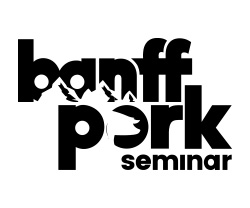Awards
University of Alberta Awards for Teaching, Learning and Research, Edmonton, 23 Oct 2024. Dr. John Basarab and Dr. Graham Plastow were again recognized for the 2023 ASTech award for Best in Agriculture.

Press
NSERC SSHRC funded project: “Using genomic tools to reduce GHG & Methane in beef cattle” was recently awarded and people are taking notice. John Basarab, Gentec CEO has given numerous interviews in recent weeks on this project:
- Nov 7, 2024, interview, hosted by Joey Slattery, 880 CHED, Edmonton
- Nov 8, 2024, interview with Kevin Ma, St. Albert Gazette (see link for feature in The Albertan)
- Nov 11, 2024, interview with Bassirou Ba, CBC Radio Canada
- Nov 11, 2024, interview with Jessica Ng, Radio Active, Edmonton
Presentations
John Basarab Livestock Gentec CEO has also presented our research at several association meetings recently. These presentations are a great way to communicate to the producer community and build interest in genomic tools. The presentations focused on profit opportunity with genomic improvement in Canada’s commercial beef herd, the value of hybrid vigour and the genomic tools Livestock Gentec has developed to help seize these opportunities.
- Manitoba Beef and Forage Conference, Portage La Prairie, MB, October 30, 2024
- BC Cattlemen’s Association – BCCA Town Hall, Courtenay, BC, November 16, 2024
Highlights from the George Foxcroft Reproduction Workshop at Leman 2024
On September 21st, 2024, Jennifer Patterson and Michael Dyck hosted the “George Foxcroft Reproduction Workshop” at the Leman Conference in St.Paul, Minneosta. The workshop had an exciting line-up of world class speakers that addressed the theme “Managing the breeding herd in a changing environment”. We were pleased to have one of our biggest attendances to date, drawing in over 100 people from 14 different countries and from a number of industries (production, academia, media, nutrition, genetic services, consulting, sales).
We always measure the impact of the workshop, not only by the number of people in the room, but by the number of sows represented. This year, over 1.4 million sows were touched by people working directly for production companies, not including the many others that will have an influence.
The goal of these sessions is always to bridge the gap between science and practice and to foster networking opportunities for attendees. We accomplished this and hope that every attendee was able to take home valuable insights that they can implement in their own systems.
Special thanks to the University of Minnesota for their 18 years of partnership in organizing this workshop, and to Merck for their continued sponsorship and collaboration in designing this well-received program.
The presentations will be posted, please check back in the future.
https://sites.google.com/a/umn.edu/leman-swine-conference/current-years-conference
“The management of an efficient breeding herd must take into consideration a variety of ‘environments’, including the animals’ physiological environment, the housing environment, the regulatory environment and the technological environment, just to name a few. These ever-changing environments that affect production are driving the need for more sophisticated and adaptable management practices. In this session we will bring together experts to discuss technical and practical considerations in dealing with these evolving environments and how to maintain an efficient breeding herd. This workshop is designed for swine producers, veterinarians, and industry professionals looking to enhance their knowledge and practices in swine breeding management. Don’t miss this opportunity to learn from the best and network with peers in the industry.”


The “last mile” – delivering research results to the people who can make the difference
Gentec works closely with industry partners in making a difference on farm. Jennifer Patterson is at the forefront of improving pork production efficiency. It was very pleasing to receive recent positive feedback from a partner that these efforts deliver key learning “to the people in the barn who can make the difference in performance”.
This aligns directly with RDAR’s commitment to delivering research outcomes that make a meaningful impact on Alberta’s economy and landscape, referring to this as the “last mile” in the delivery and uptake of research results. RDAR CEO, Dr. Mark Redmond emphasized this at a meeting RDAR hosted in Lacombe on November 18th. The aim was to bring producers, researchers, agri-businesses and municipal leaders together “to learn about funding opportunities, what practices are being adopted on-farm, and what research is underway to drive improvements in central Alberta’s agricultural practices”.
Putting tools in the hands of barn staff, as Jennifer does, is maybe an example of the “last quarter or even furlong”. Thank you once again to all Gentec’s partners who make these things happen.
Livestock Gentec at Farm Fair 2024
Livestock Gentec shared a booth with University of Alberta Faculty of Agriculture, Life and Environmental Science (ALES), November 8 and 9. The event hosted show-animal competitions, booths from agriculture providers, producer meetings and lots more. We had a great time connecting with producers and the public on how we are advancing adoption of genomic tools in livestock. A special thanks to Dr. Rene Dery for coordinating the ALES booth.


(left) University team Nov 9 at the ALES booth, joined by ALES Dean Dr. Yada. (right) Livestock Gentec team members (Dr. Tiago Valente and Jordan Roberts) with research posters and tissue sample units on display.
While at Farm Fair John Basarab (CEO) and Tiago Valente (Research Associate) attended Farm Forward roundtable discussions hosted by Graham Neil–pictured below, and the Canadian Beef Breeds Council (CBBC) annual general meeting. John and Tiago had the opportunity to introduce themselves to the CBBC delegates and listen to several presentations.

Farm Forward roundtable discussions at Farm Fair 2024 in Edmonton








